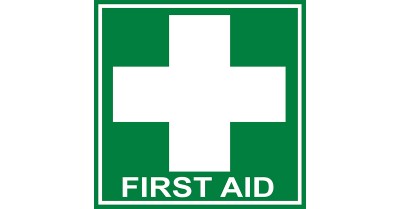According to the National Regulations, there are mandatory requirements for first aid qualified educators to be in attendance at all times to be available in an emergency.
Regulation 136 of the Education and Care Services National Regulations states the following:
Centre - Based Services
The approved provider of a centre-based service must ensure that each of the following persons is in attendance at any place where children are being educated and cared for by the service, and immediately available in an emergency, at all times that children are being educated and cared for by the service—
- (a) at least one staff member or one nominated supervisor of the service who holds a current approved first aid qualification;
- (b) at least one staff member or one nominated supervisor of the service who has undertaken currently approved anaphylaxis management training;
- (c) at least one staff member or one nominated supervisor of the service who has undertaken current approved emergency asthma management training.
Services must have staff with current approved qualifications on duty at all times and immediately available in an emergency. One staff member may hold one or more of the qualifications.
Premises On A School Site
If children are being educated and cared for at service premises on the site of a school, the following qualified Educators are in attendance at the school site and immediately available in an emergency—
- (a) at least one staff member of the school who holds a current approved first aid qualification
- (b)at least one staff member of the school who has undertaken currently approved anaphylaxis management training
- (c) at least one staff member of the school who has undertaken current approved emergency asthma management training.
Family Day Care
The approved provider of a family daycare service must ensure that each family day care educator and family day care educator assistant engaged by or registered with the service—
- (a) holds a current approved first aid qualification; and
- (b) has undertaken currently approved anaphylaxis management training; and
- (c) has undertaken current approved emergency asthma management training.
Note: Each family day care educator and educator assistant must hold all three qualifications.
Approved First Aid Qualifications
Under the Education and Care Services National Regulations, ACECQA must publish a list of approved first aid qualifications, anaphylaxis management training and emergency asthma management training.
The 'qualifications' on the list are either national or state-accredited units of competency or short courses.
If you have completed training and want to know if it is approved, you can search ACECQA's list of approved qualifications. You will need to know the name of the training course and its code or other unique identifiers. This information will appear on your certificate or transcript.
List of: Approved Qualifications
First Aid Qualification Renewal
The industry standard is that first aid qualifications should be renewed every three years and refresher training in CPR should be undertaken annually.
Regulatory Requirement
Regulation 136 requires your first aid qualification to be current. Your certificate will state the date on which you completed the course. It may also include information about the expiry date or requirements for refresher training. Please note that the validity of some first aid certificates may be subject to specific requirements, e.g. your certificate may state that you must complete refresher training in CPR every 12 months for the qualification to remain valid.
First Aid Certification
The Safe Work Australia First Aid in the Workplace Code of Practice recommends that first aiders attend training on a regular basis to refresh their first aid knowledge and skills and to confirm their competence to provide first aid. The Code of Practice recommends that first aid qualifications should be renewed every three years.
CPR Renewal
The Australian Resuscitation Council states in its Guideline 10.1 that repeated CPR refresher training is needed for individuals who are not performing resuscitation on a regular basis. Both the Australian Resuscitation Council and the Safe Work Australia First Aid in the Workplace Code of Practice recommend that all those trained in CPR should refresh their CPR skills at least annually.
References:
First Aid Qualifications, ACECQA
Education and Care Services National Regulations



 As an Educator in Australia, your pay rate falls under the Children’s Services Award 2010. This award states the minimum amount that an employer can
As an Educator in Australia, your pay rate falls under the Children’s Services Award 2010. This award states the minimum amount that an employer can When working as a qualified Early Childhood Teacher (with a university degree) within a service, your rate of pay will come from the Educational Services
When working as a qualified Early Childhood Teacher (with a university degree) within a service, your rate of pay will come from the Educational Services When working as a Diploma Qualified Educator your pay rate is from the Children's Services Award 2010. This Award states your minimum rate of pay
When working as a Diploma Qualified Educator your pay rate is from the Children's Services Award 2010. This Award states your minimum rate of pay When working as a Cert 3 Qualified Educator, your pay rate is from the Children's Services Award 2010. This Award states your minimum rate of
When working as a Cert 3 Qualified Educator, your pay rate is from the Children's Services Award 2010. This Award states your minimum rate of Educational Leaders play a crucial role in their early childhood service by ensuring that the educational program aligns with best practices and supports the holistic
Educational Leaders play a crucial role in their early childhood service by ensuring that the educational program aligns with best practices and supports the holistic In early childhood education and care, ratios are more than a technicality—they are a frontline safeguard. Every child deserves responsive supervision, emotional connection, and developmental
In early childhood education and care, ratios are more than a technicality—they are a frontline safeguard. Every child deserves responsive supervision, emotional connection, and developmental Here’s a comprehensive Mobile Phone and Smart Watch Policy tailored for early childhood education and care (ECEC) services in Australia, aligned with the latest 2025
Here’s a comprehensive Mobile Phone and Smart Watch Policy tailored for early childhood education and care (ECEC) services in Australia, aligned with the latest 2025 With the new national child safety reforms kicking in on 1 September 2025, early childhood services like yours have a real opportunity to lead the
With the new national child safety reforms kicking in on 1 September 2025, early childhood services like yours have a real opportunity to lead the The Sea of Fish Challenge is a national initiative that invites children, educators, families, and communities to create and display fish artworks as a symbol
The Sea of Fish Challenge is a national initiative that invites children, educators, families, and communities to create and display fish artworks as a symbol Across the early childhood education and care sector, educators are sounding the alarm: current staffing ratios are insufficient to deliver safe, meaningful, and developmentally appropriate
Across the early childhood education and care sector, educators are sounding the alarm: current staffing ratios are insufficient to deliver safe, meaningful, and developmentally appropriate


